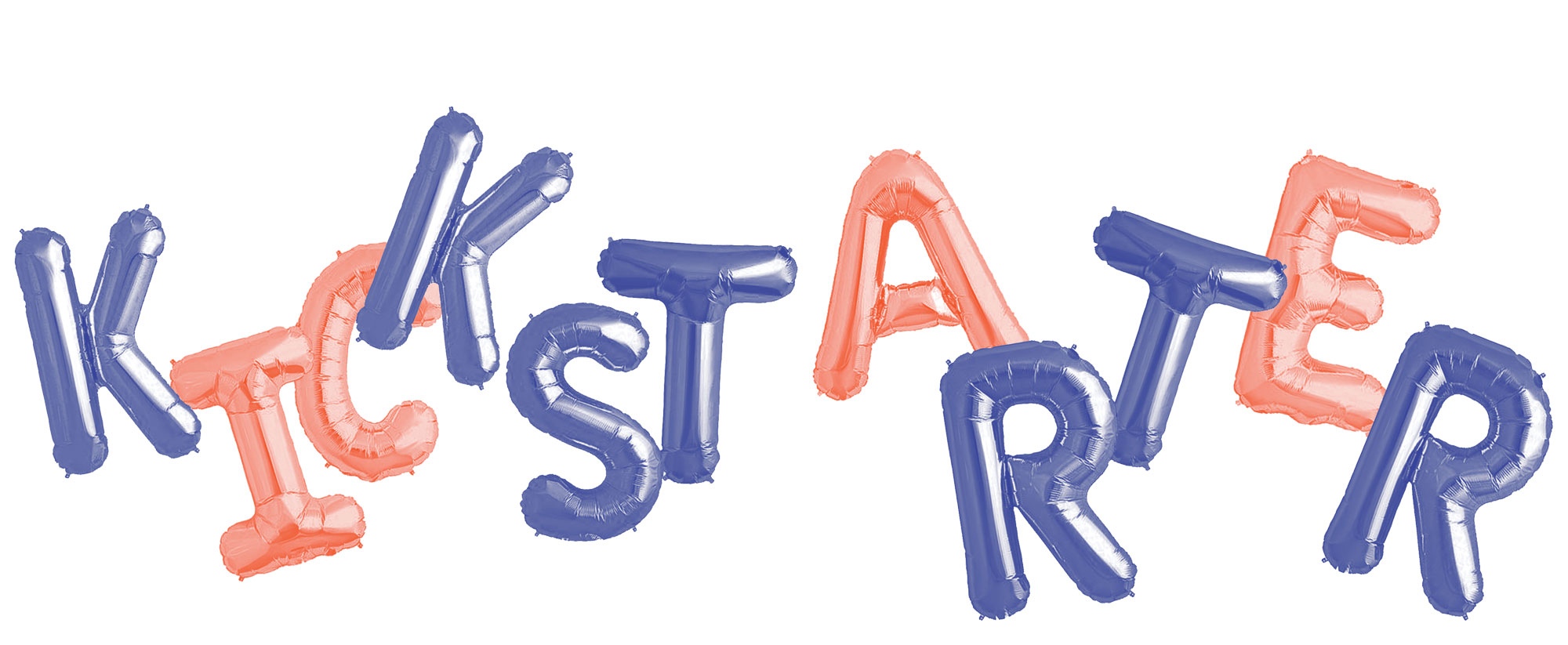Text, Image and Sound Extracts from a Travel Journal
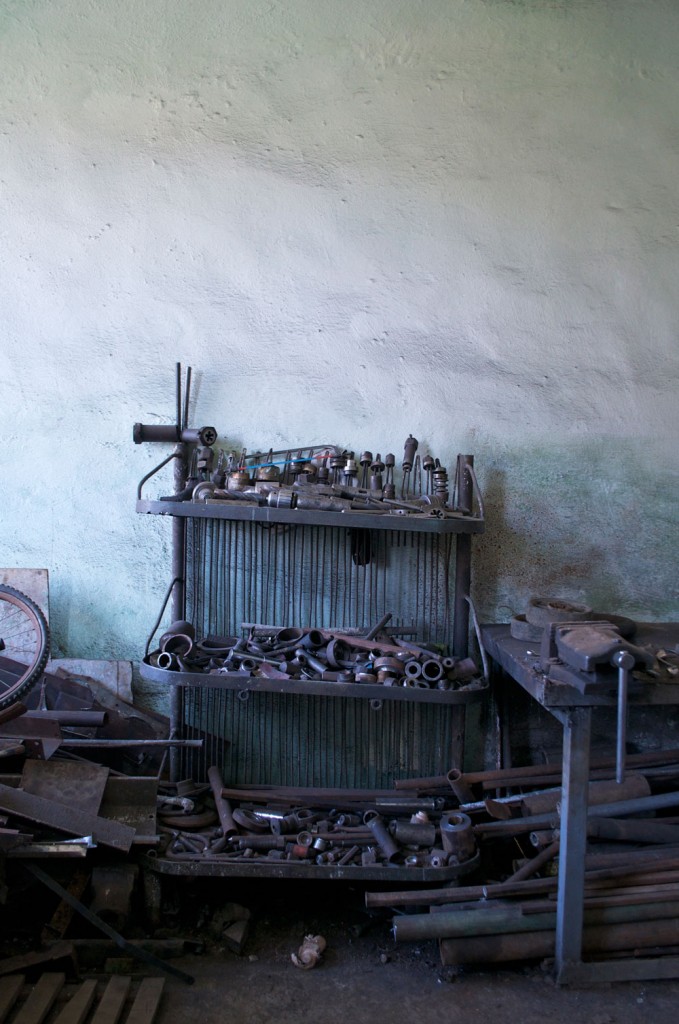
We walked through the mountain valley beside the entrance to the town of Puka. Our host, Leo, the son of the owner of the guesthouse we were staying in, told us that the small lake overlooking the ridge into a stream was artificial, like most of the lakes we had seen during our travels in Albania. The clear water was overhung with draping willows, and tapered into a stream that would be useful for irrigation or flood run off, flowing into the fields below the pine forests.
Leo laughed and told us that five people had drowned there in the last year: three drunks and two suicides. One of the suicides was the mother of one of our fellow guesthouse occupants. She left a note saying goodbye and where to find her. I couldn’t understand the laughter that accompanied this tale, but we were working through a translator. Edi (our translator) also found loss of life in these seemingly pointless ways amusing rather than tragic. The consensus seemed to be that these people were a little stupid for perishing so easily.
In the late 1940s, Enver Hoxha’s socialist government built 1000s of artificial lakes. Hoxha’s plan had transformed Albania from a malaria-infested backwater with only 22 doctors in the entire state to the most electrically advanced nation in southern Europe. Nearly 100% of the country’s electricity still comes from the system of hydroelectric dams.
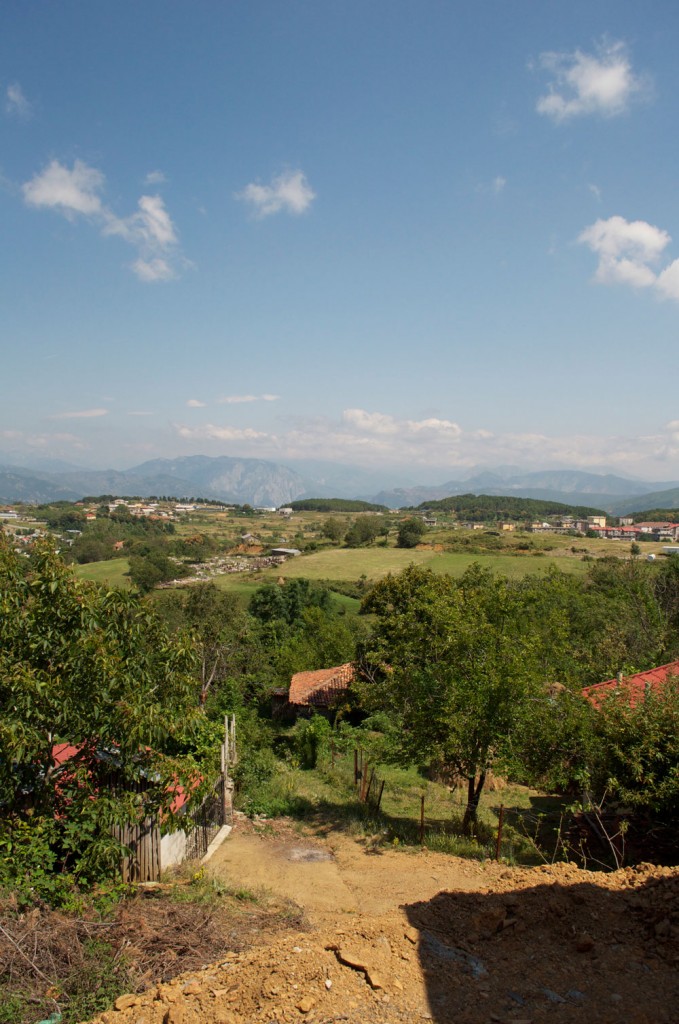
Puka is a resort town. Skiing in the winter and hiking in the summer. Czech tourists passed through for an evening, arriving on motorbikes. The local hospital was founded by a philanthropic German couple. That evening we watched the Albanian-style Passagiato. Families and cliques of teenagers strolled up and down the wide, clean main street, lined with pale green, orange, and white buildings of wood and plaster. At 6 p.m. the call to prayer sounded, and a Tupan player shunted the incongruent and leisurely pace of the strollers, steadily herding the crowd toward the mosque. In Albania Muslims and Orthodox Catholics are cousins within the same family and there is no contradiction.
We stopped in to a souvenir shop that was run by an instrument maker. A few lutes, Chefteli and Sharki hung above racks of silver jewelry and lighters. He brought out an unfinished violin he had begun during Hoxha’s time, when he was in charge of the violin factory, along with a carved wooden portrait of Hoxha’s face. On the walk back to the guesthouse the thick forests of Puka hummed with insect life, laborious, steady, musical.
In the morning as we were drinking our first large double shot of espresso for the day, our host’s son told us a five-year old girl had been playing with a hand grenade that she had found in a field and exploded herself. He shrugged. Twenty years ago this whole region was in arms. Albania had its own uprising in 1996 after the longstanding socialist government transitioned to a shaky democracy. Then, in 1999 the borders were flooded with Albanian Kosovar refugees fleeing persecution from the Serbs. In the mountain village of Puka, with fresh cool air, and cooing roosters, the gruesome realities seem reserved for the caged rabbits that guests can choose live for their evening’s dinner.
Deforestation is now one of the main threats to the region; rampant development and unregulated logging compromised the environment after the transition to a democracy. One small local sawmill was working the day we arrived for the first time in six months, slicing boards from eight year-old timbers. As we were watching the process, the belt broke on the machine.
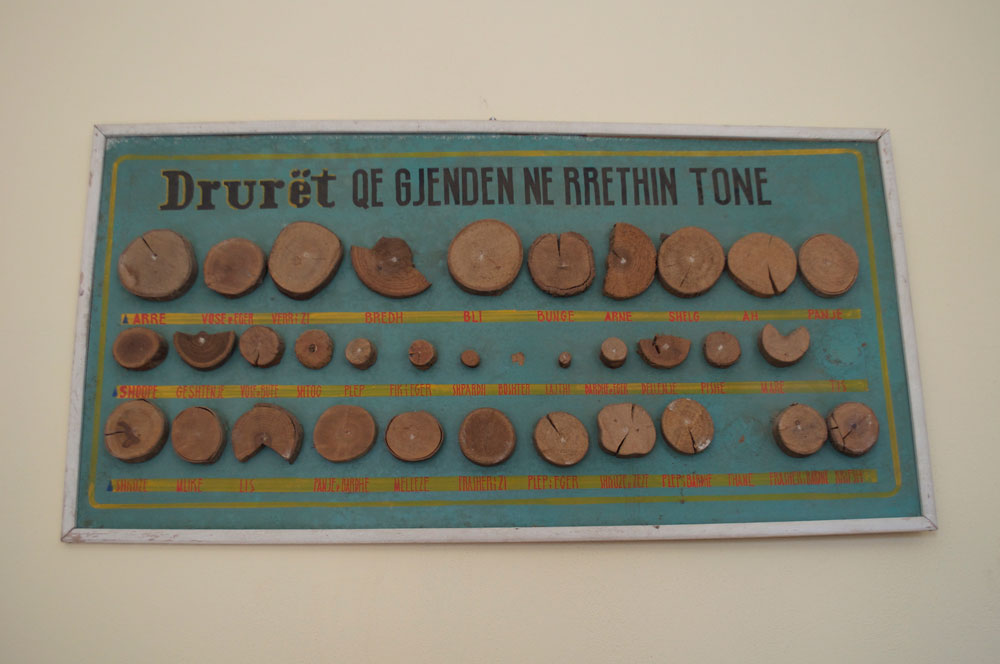
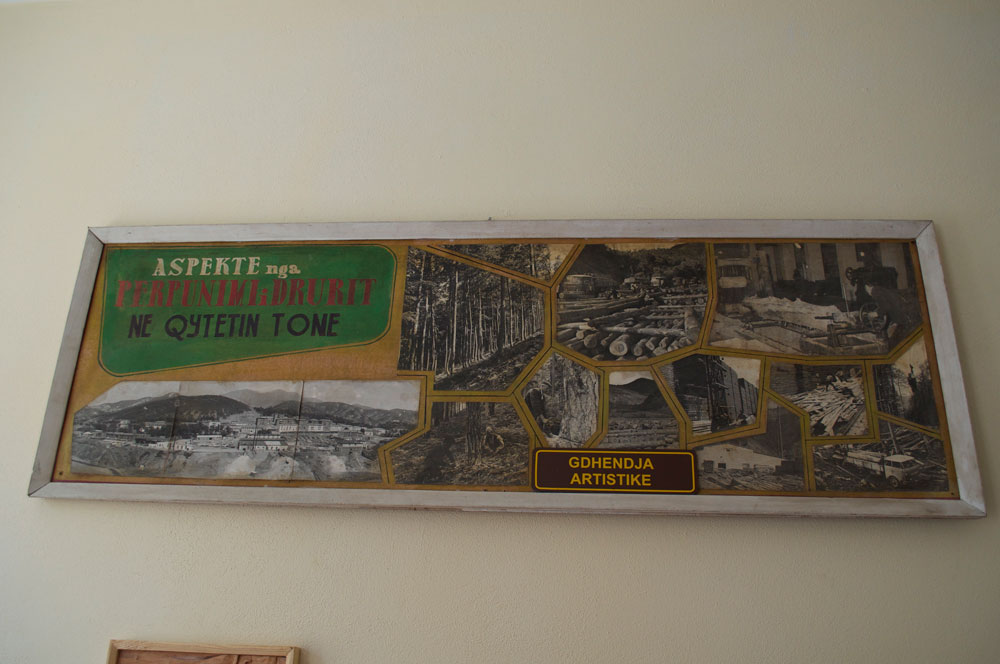
Leo was showing us local industry because we had asked to hear sounds that are unique to this place. After the sawmill’s untimely halt, he fittingly brought us to a machinist in an old communist era grain storage warehouse. The corrugated aluminum of the roof flapped along with the fickly roosting pigeons, a regular percussion audible over the steady hum of the motor.
The operator had been working with this same lathe for 30 years. When he started running it, he made large parts for railways. During communism the whole of Albania had 2,000 cars. Private transportation was heavily discouraged over the use of public systems. Now he still uses the machine, but for smaller parts. He could always tell the health of his equipment by the sound of its hum. We took his portrait, as he stood proudly beside the machine.
A mechanic working in the central area of the warehouse became suspicious of the photography. In the car Leo told us that it’s not our fault he is angry. His wife, sister, and mother all killed themselves. In recent living memory, one out of ten people were government informants, but this information of family tragedy was delivered as an easy justification for the man’s grumpiness.
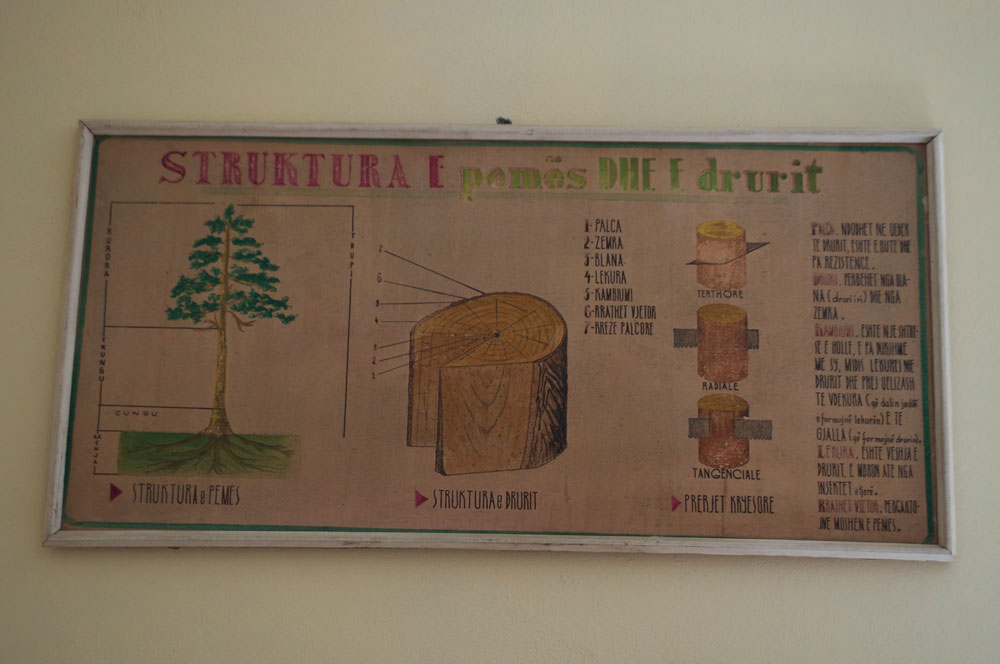
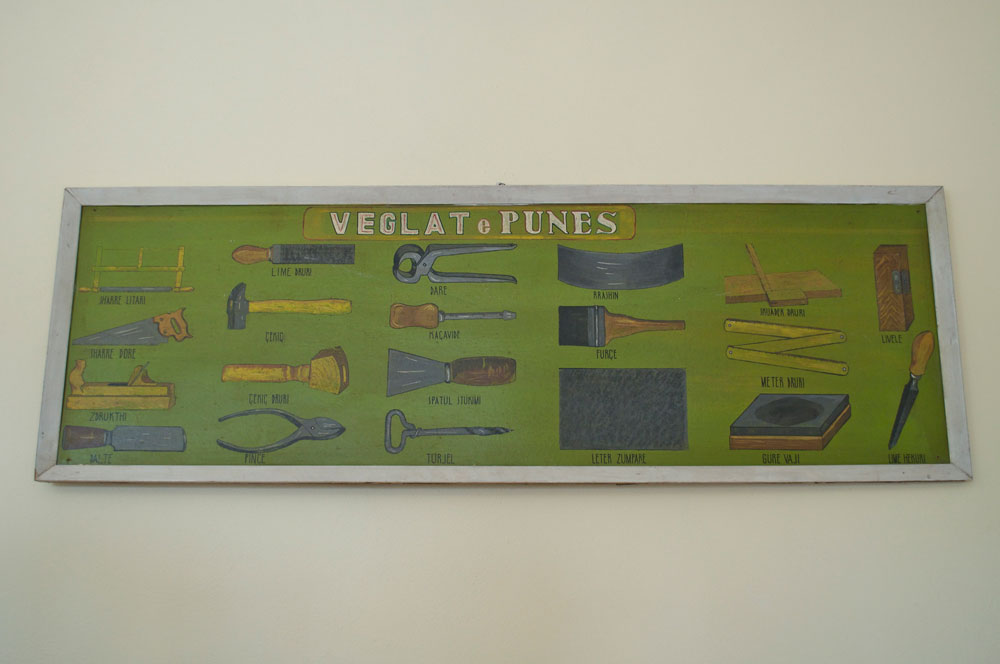
In the afternoon we drove to Füsh Arrëz, along the winding road that hugs the side of the pine-forested mountain tightly, with little room for passing cars at the curves. The sudden drop of the cliff-sides is marked with intermittent barriers – marble memorials to people who have lost their lives on the way. Hill, who was driving us to visit his community center in Füsh Arrëz, pointed out the memorial for the former Minister of Transport who went off the edge a couple of years ago. The road has now been named after him. Further along the route we were told of a bus full of Kosovan children that had rolled down the hill. The twelve young people were memorialized in a cement fountain by the roadside.
Locals in Puka warned that Füsh Arrëz was a bad place with deceitful inhabitants. Hill, who steadily unrolled a barrage of dirty jokes on our drive, introduced us to his community center in the town. Young teachers, forestry conservationists, a psychologist, a former soldier – they all greated us one by one and told us about their work in the town. They ran a center for children, teenagers, and old age pensioners. Every weekend they would collect the older population, many of them in their 90s and bring them together for dinner, dancing, and talking. They wanted to encourage a renewal of life, and they even oversaw several marriages between widowers over 80. An image of Mother Theresa, a Macedonian born Albanian hung over the meeting table. Upstairs they had traditional instruments for instructing children and downstairs a small woodshop with carving tools. Rich in natural resources, Füsh Arrëz had been exploited for copper, chrome, and timber. Laborers were paid nothing, and the profits left the region without improving local conditions. Now these volunteers were making themselves and others feel better by being together.



